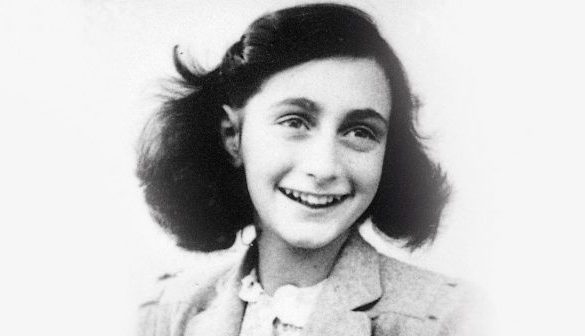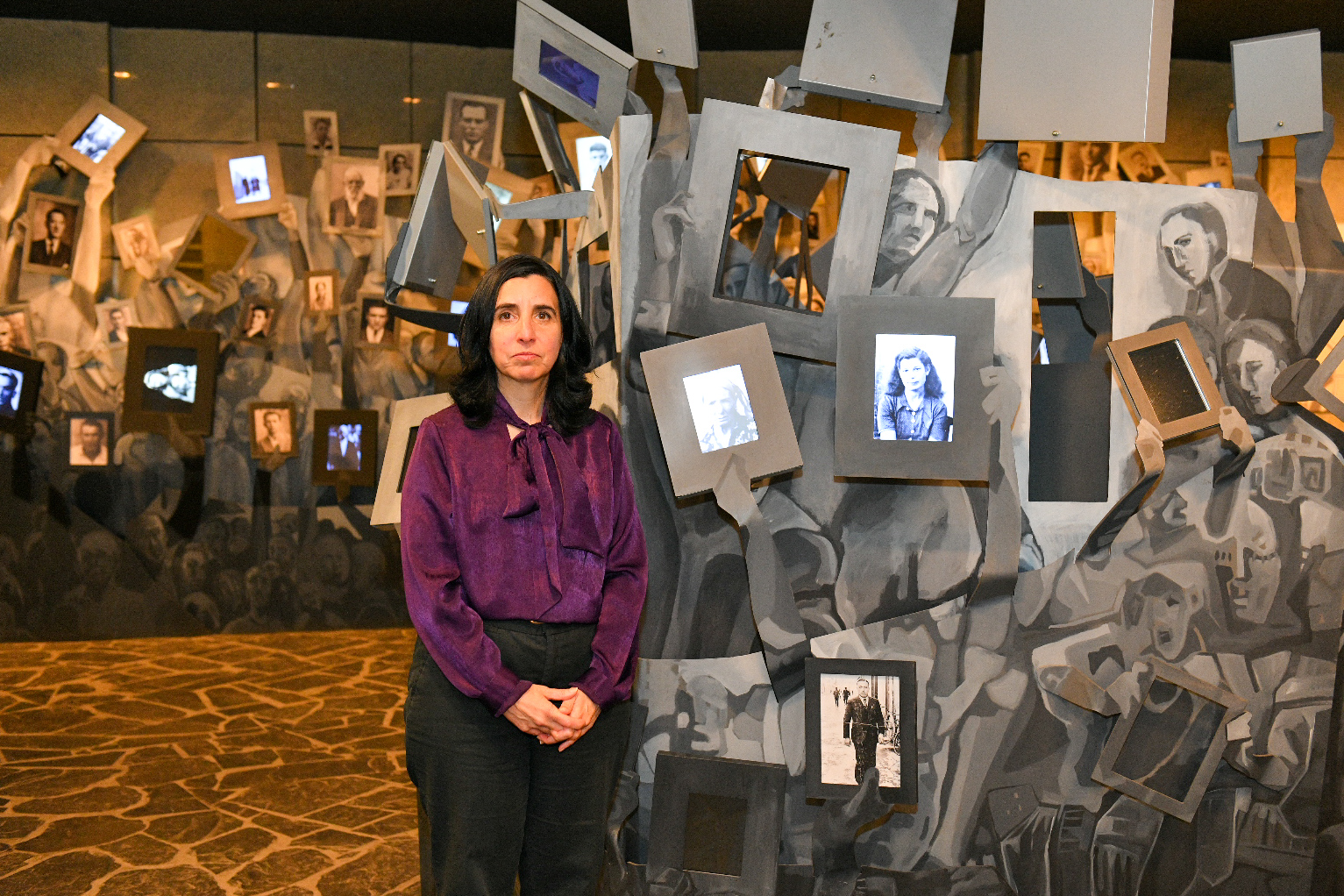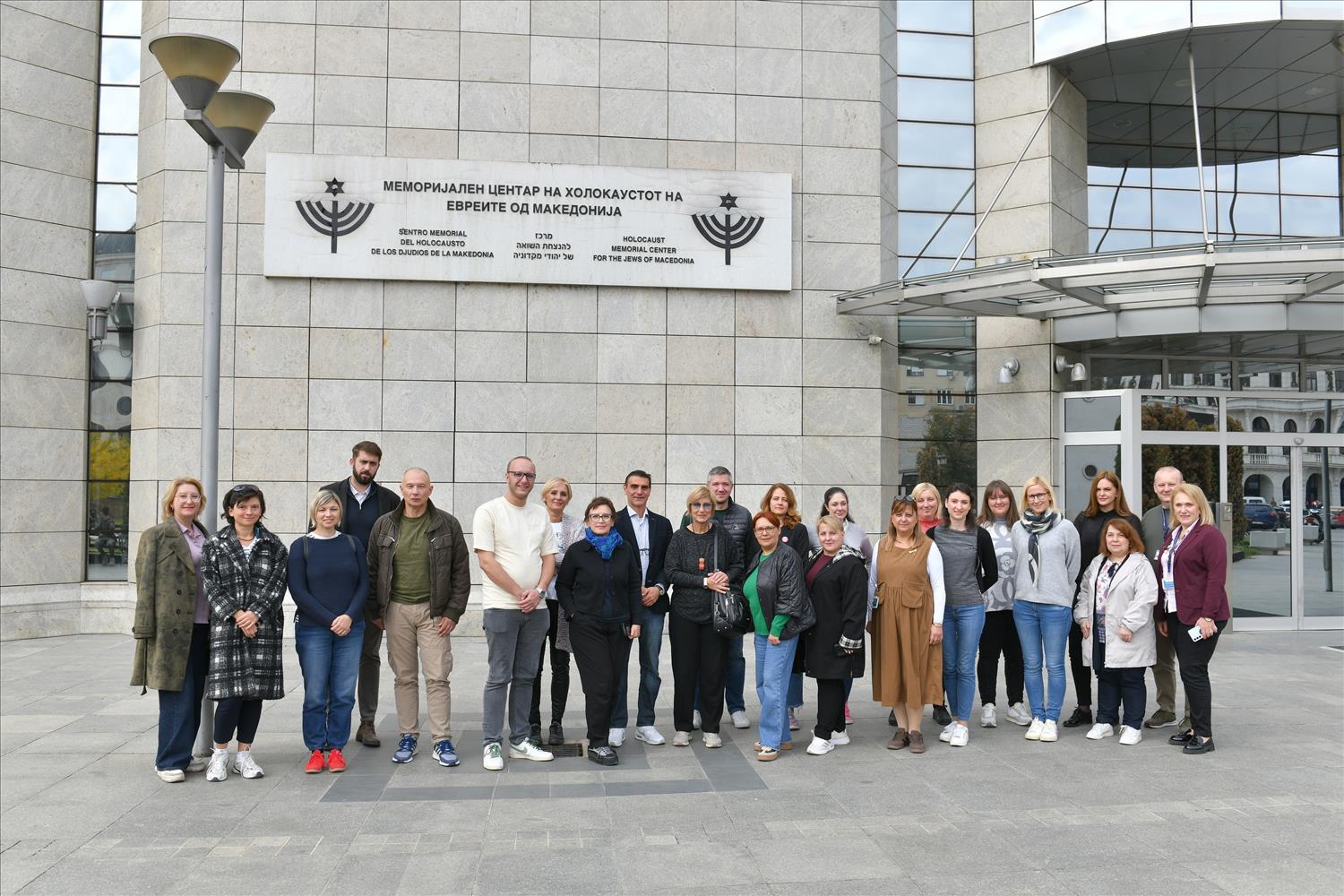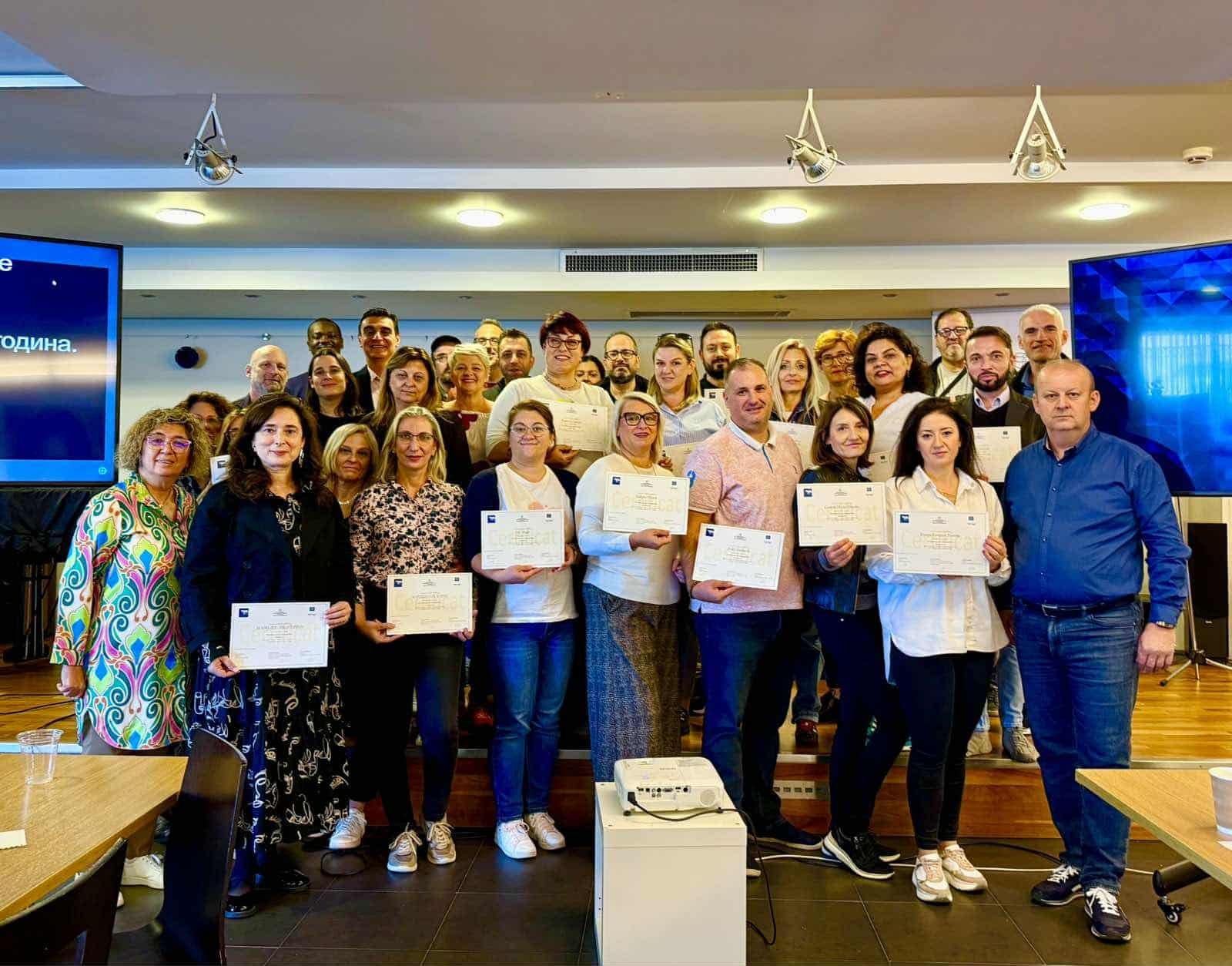Zhaklina Mucheva: The story of Anne Frank is tragic one, albeit it brings a strong message for life

The world commemorates today 90 years of the birth of Anne Frank, a Jewish girl who was hiding for two years from the Nazis, together with her family, in an apartment in Amsterdam. Before the end of World War II, her family was found and brought to a concentration camp. Anne Frank did not survive the War but her diary was read by many generations. On the relevance of the Anne Frank’s diary, we are interviewing Mrs. Zhaklina Mucheva, Head of the Sector for Research, Documenting and Archiving in the Holocaust Memorial Center of the Jews from Macedonia. Twelfth of June 2019 commemorates 90 years of the birth of Anne Frank. Why is her work important and what does the “Diary of Anne Frank” mean for the Jewish community and for the world as a whole? This is an unfinished book that talks about mass humiliation and destruction of the Jewish community. This youth diary becomes a world classic work describing the horrors of war, the misery of the human existence in inadequate conditions of daily living, and is a powerful reminder and primer for a time when the ideology of mass hatred and genocide ruled. Not knowing that she leaves behind a living witness, a timeless book, Anna is the hero of her time. Her record of the changes that took place for two years hiding in the attic, trapped in the ceiling, living in constant fear and isolation – is admonition to all people. By reading this book, everyone should become aware of the greatest military evil and degradation of the human spirit. Why is important for the young people to read the “Diary of Anne Frank”? “Diary of Anne Frank” is a very good book to consider because it can handle a number of topics and send many messages. The diary entries indicate thinking, discussion, attitude formation and opinion – something that all children over the age of 12 need to learn. The book will teach them how to reason and form their own opinion. Of course, the teacher is the key factor in guiding the pupil, so he/ she needs to get the most out of the book and give directions on how to review it. With the diary they can link knowledge from different subjects. The students can talk about the circumstances that made the Franks leave Germany for Netherlands and hide in the attic; and about the Nazi treatment of the Jews during World War II. How did the stress affect the people who were hiding in the attic with Anna, how she treated her mother, and how her father influenced her? Emotions of a teenager living in conditions in which all eight characters of the book live. Although the story of Anne Frank story is sad and tragic, it still carries a strong message about life in general - despite the risk, people still need to help each other, it is good to be human and help each other. That is why every student and adult must read this book. Anna wrote: "The greatness of the man lies not in wealth and power but in character and goodness. The people are only people and all of them have their flaws and weaknesses, but we are all born good." After nearly nine decades of the Holocaust, memories of it are fading. What is needed for people to understand the magnitude of this atrocity in order to prevent its recurrence? The consequences of the war and their impact on the lives of the Jews are so profound that today, after 76 years, they still cannot be fully understood. The great human sacrifices and their terrible suffering are the visible traces of that period. The Holocaust changed the image of the Jewish people around the world. Today, three generations after the Holocaust, the number of Jews in the world is similar to the number before the beginning of World War II. For the younger generation, who did not live during the Holocaust, the Auschwitz symbol turned into a threatening reminder. The Holocaust has proven that the modern man, no matter the cultural, scientific or technological progress, has not become more tolerant. In times of crisis, the people are easily subject to extremist ideologies and uncontrolled group egoism. Students should therefore be given educational guidance that will be a good guide to overcome prejudice. The education should help us build intellectually and morally healthy individuals, free from prejudices of the past, with healthy views of the future. The topic of the Holocaust is a great example. And what should be done to prevent such things from happening again?? The topic of the Holocaust helps the people, and even pupils/ students, to overcome the prejudice and it is the first step in combating discrimination. If this period is analyzed correctly, in accordance with the instructions given by experts, it will make the students think about current human rights violations and will raise the question: can the Holocaust be repeated on any other nation? The potential for genocide, as a phenomenon of the new age can only be prevented by learning the lesson of the past. Of course, the education should not include the frightening moments that would shock the students, but it simply about finding ways to explain what happens when a nation blindly follows the leader and violates conventional moral norms. A few years ago, a Holocaust Memorial Center of the Jews was opened in Skopje. Who visits this center and how often do pupils/ students come to visit? Most visitors are tourists, but the initiative of the schools to visit the Memorial Center is commendable. We are open to all visitors. The awakening of the awareness, the sensitizing of the public, the education and the self-education with alternative forms of learning are the basic tasks of the Museum in general. Therefore, for any museum to be successful, it is not the number of visitors that matters, but the extent to which a museum is actively involved in the creation of the public awareness and the extent to which it is initiator of new ideas and activities. During the school year, the students, together with their teachers, visit the Holocaust Memorial Center of the Jews from Macedonia. They receive a proper basis for the teaching subjects of history and civil society, so when they come to see the museum exhibition they are essentially upgrading their knowledge. Undoubtedly, it is more than certain that the need for Holocaust education is a need for both students and teachers. They need expert training in order to receive proper Holocaust education guidance and knowledge. They should be encouraged to undertake this challenging and responsible task, so they can teach genuinely and appropriately to the age of the children, the historical events that are based on truth. We, at the Memorial Center, are ready to offer education for both pupils/ students and teachers. The mission of the Museum is to share knowledge and experience, to communicate – all of that to be a two-way street. It means that the audience i.e. the visitors can learn from the Museum, but the Museum also learns from them, recognizing their needs. That way we keep the memory alive, not just about Anne Frank, but for all Annes who are long gone. That's why I will conclude with an excerpt from "Anne Frank's Diary": "I don't want to live in vain, like most people do. I want to be helpful and bring pleasure to all people, even to those I have never met. I want to continue living after death!" Gj.B.
Share: << Back
Any help from you is more than welcome.
Donate to continue with the successful work and education




